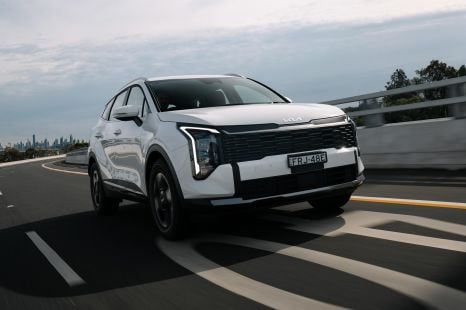

Marton Pettendy
2026 Kia Sportage S Hybrid: New base model undercuts RAV4
2 Days Ago

Contributor
The Hyundai i30 hatchback has been given a nip and tuck for 2021, with a range of interior and technology tweaks to keep it fresh in the face of tough competition.
Gone is the base i30 Go, replaced with a model simply known as the i30. Although it’s $3000 more expensive than before, it also has a full active safety suite standard – previously it was part of a $1750 option package.
The range moves through the Active and Elite, and will be topped with the sportier N Line and N Line Premium. The range-topping N Line Premium is now available with a manual transmission, in a win for traditionalists who like the finer things in life.
Update, 16/10/20:Hyundai has provided updated imagery for the 2021 i30 hatch. We’ve updated the article and pulled it forward.
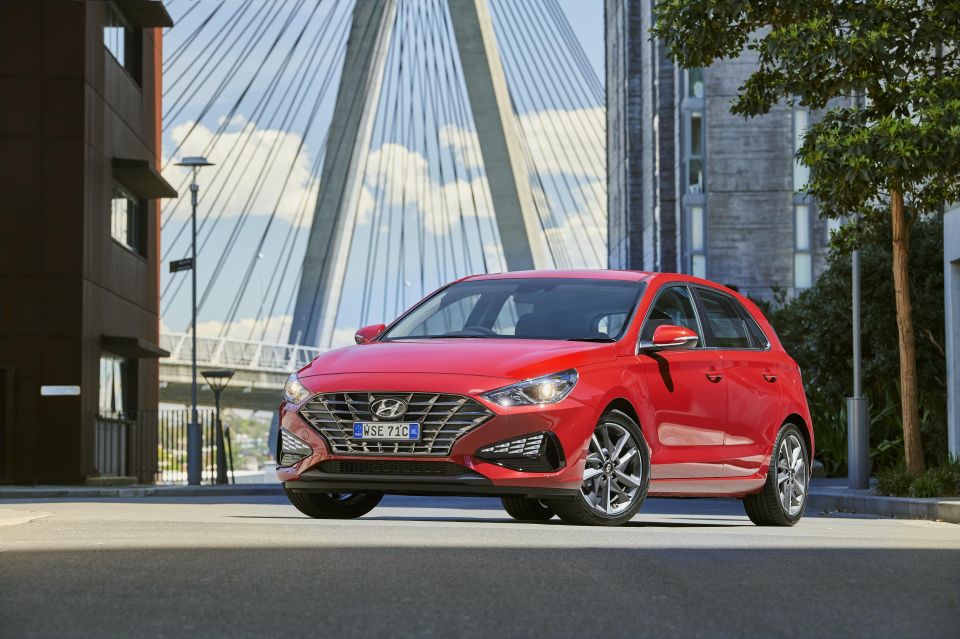
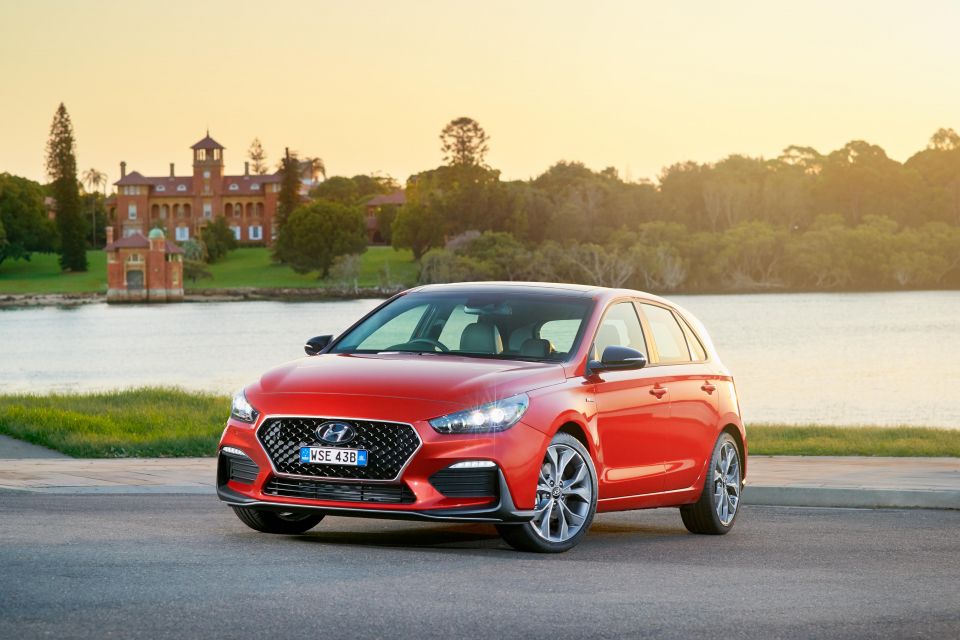
Externally, the 2021 Hyundai i30 hatch (above left) on sale in Australia differs from the facelifted European model revealed earlier this year. Rather than a slim, slash-like headlight design with integrated daytime running lights, our car gets similar headlights to before and a new daytime running light signature in the bumpers.
The i30 N Line and N Line Premium (above right) carry over their outgoing designs, Hyundai Australia has confirmed. The car headed for Australia is built in South Korea, while the facelifted N Line revealed for Europe is produced in the Czech Republic.
Inside, high-end models get a new 10.25-inch infotainment system atop the dashboard and a new digital instrument binnacle.
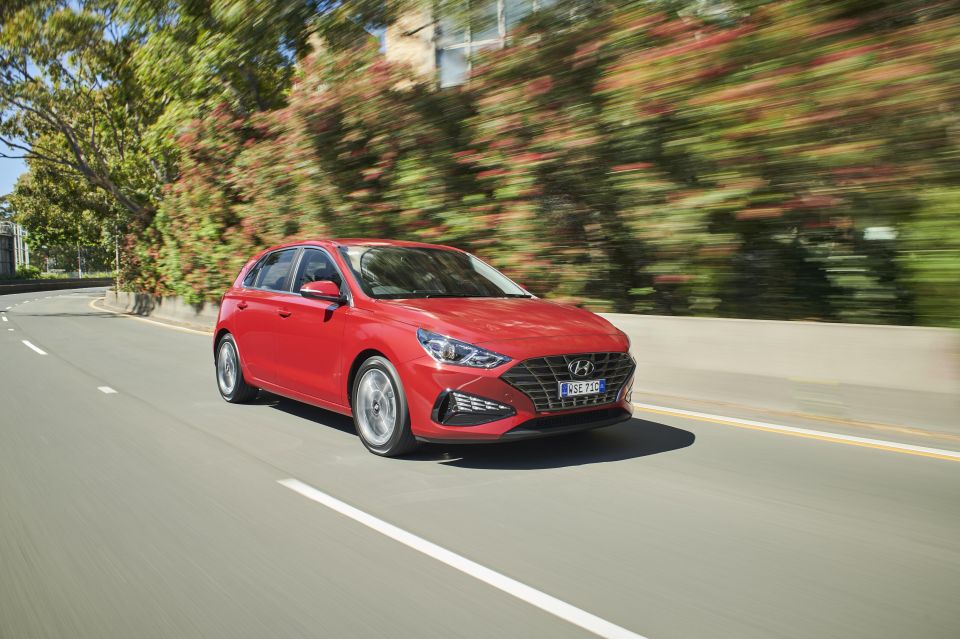
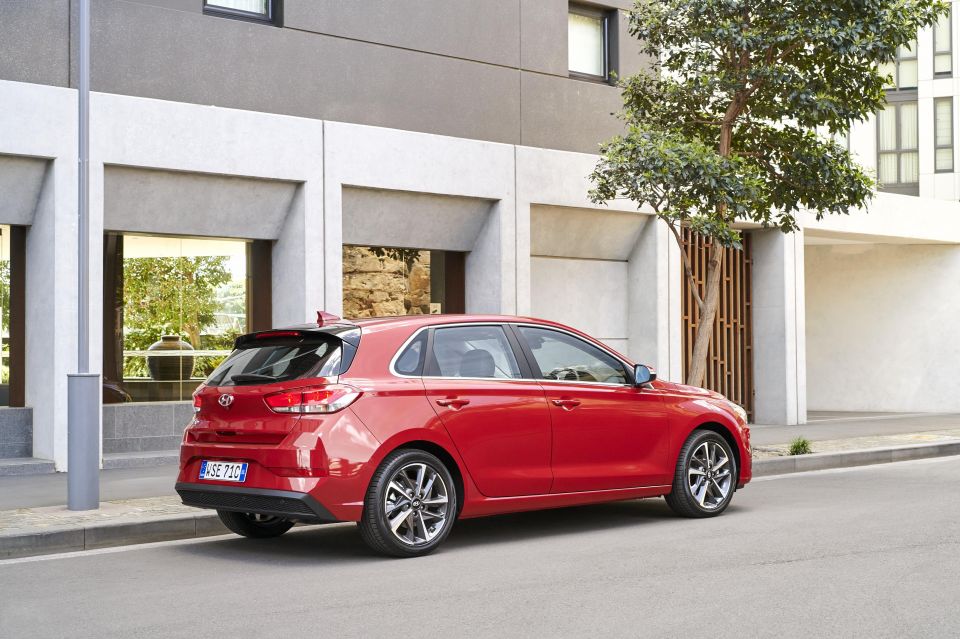
All prices exclude on-road costs.
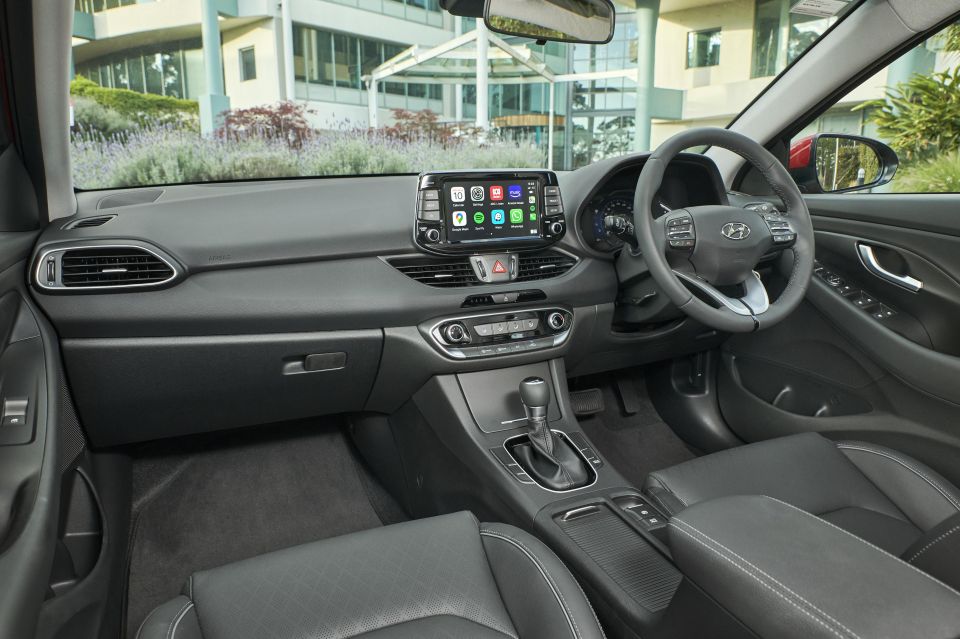
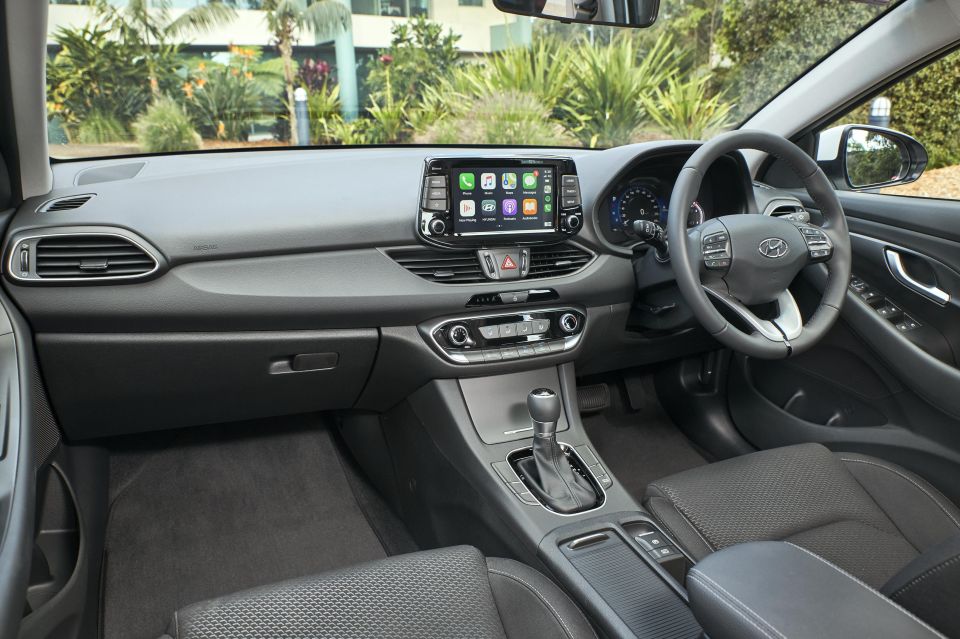
The 2021 Hyundai i30 is available with two engines.
The Hyundai i30, Active, and Elite come standard with a naturally-aspirated 2.0-litre four-cylinder engine producing 120kW of power and 203Nm of torque. This engine is mated to either a six-speed manual or six-speed automatic transmission.
Standard on the i30 N-Line and i30 N-Line Premium is a turbocharged 1.6-litre four-cylinder engine producing 150kW and 265Nm and mated to a six-speed manual transmission. A seven-speed dual-clutch automatic transmission is optional on the i30 N Line.
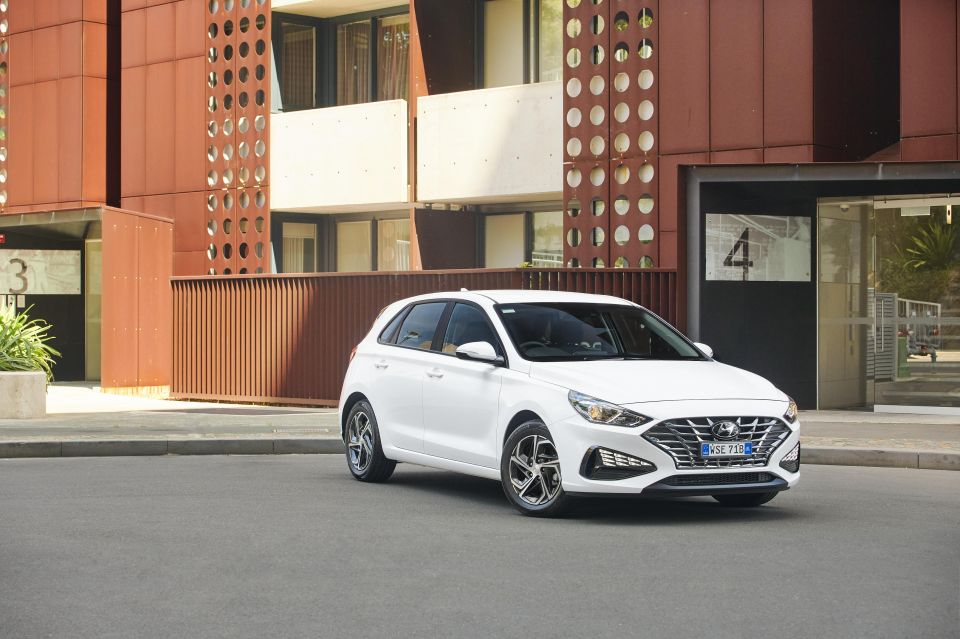
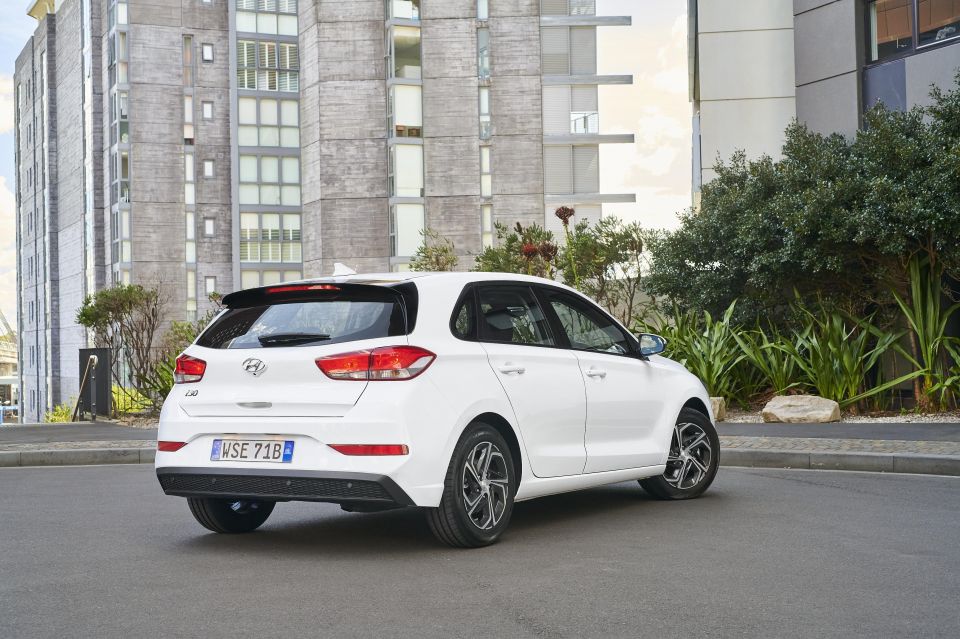
The 2020 Hyundai i30 2.0-litre consumes 7.3L/100km on the combined cycle when equipped with the manual transmission and 7.4L/100km when equipped with the automatic.
When equipped with the turbocharged 1.6-litre and six-speed manual, the i30 consumes 7.5L/100km on the combined cycle. Opting for the dual-clutch automatic brings this down to 7.1L/100km.
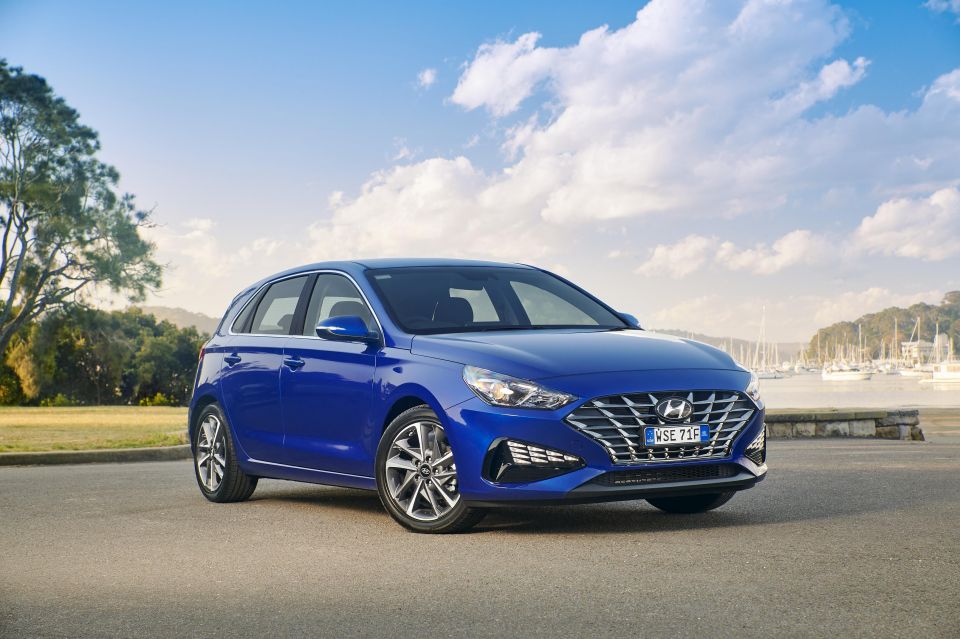
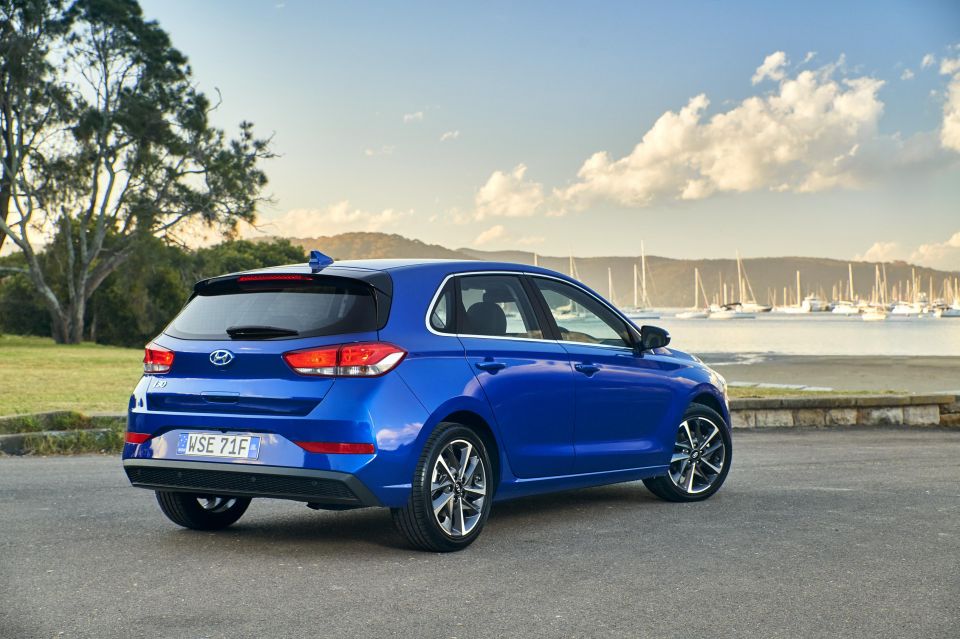
The 2020 Hyundai i30 Go, Active, Elite and Premium measure 4340mm long, 1455mm tall and 1795mm wide.
The Hyundai i30 N Line and N Line Premium measure 4345mm long, 1453mm tall and 1795mm wide.
The Hyundai i30 has 395L of volume in its cargo area, increasing to 1301L with the rear seats folded.
When the Hyundai i30 was tested by ANCAP in 2017, it received a rating of five stars.
That rating was based on a frontal offset score of 14.01 out of 16 and a side impact score of 16 out of 16. Whiplash and pedestrian protection were rated Good and Acceptable, respectively.
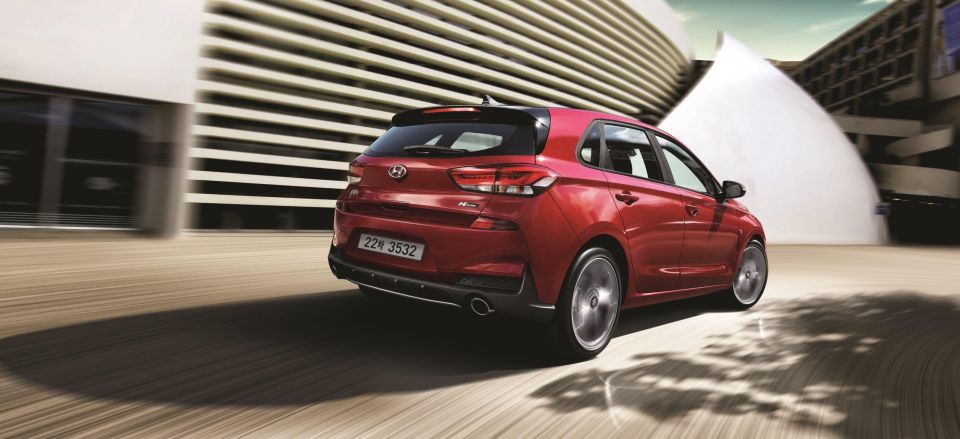
Previously, the base i30 Go and Active needed a $1750 package to include the full active safety suite.
Now, even the base i30 includes autonomous emergency braking with forward collision warning and pedestrian and cyclist detection, as well as lane-keeping assist and lane-following assist. Automatic models also get adaptive cruise control with Stop & Go, although the manual i30 and N Line miss out.
Blind-spot monitoring, rear cross-traffic alert and safe exit alert are reserved for the i30 Elite.
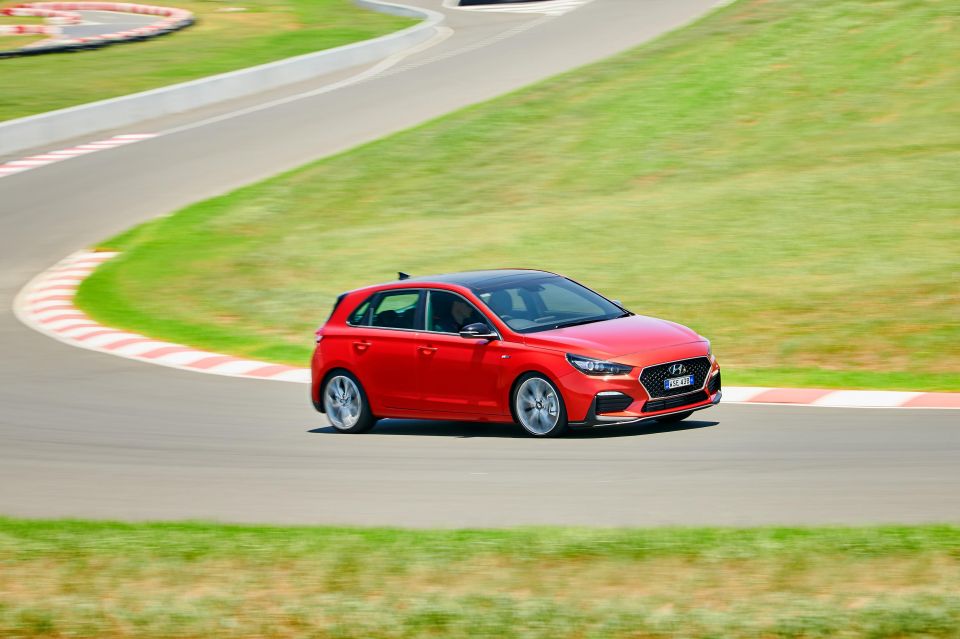
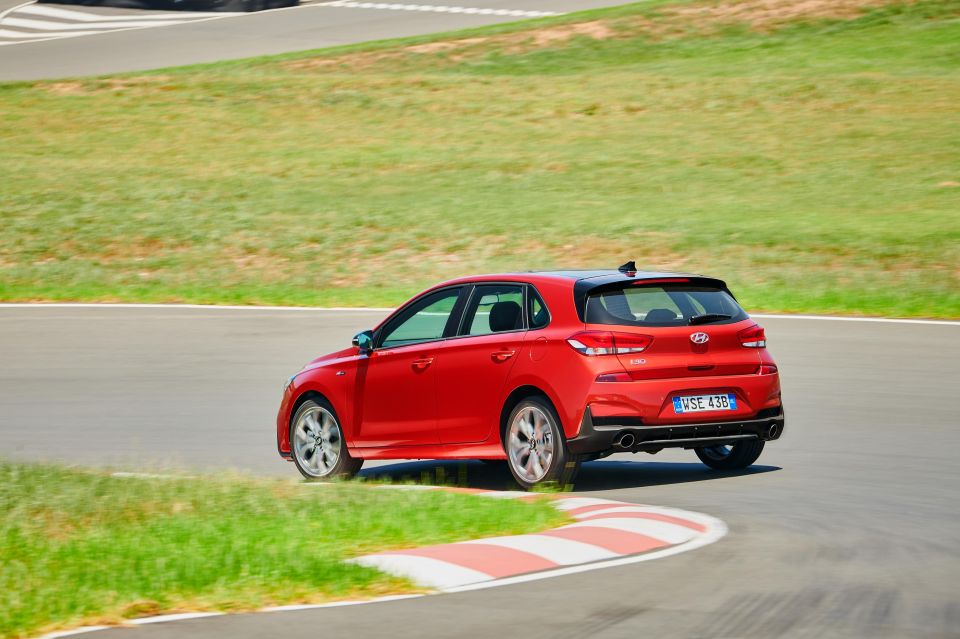
The 2021 Hyundai i30 comes with the following standard features:
The next rung up is the i30 Active which adds the following:
The i30 Elite adds the following features:
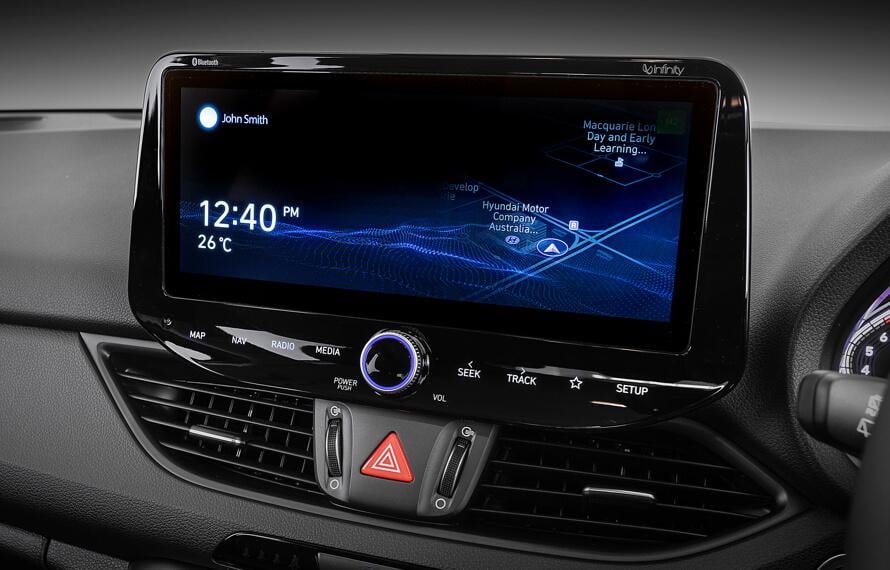
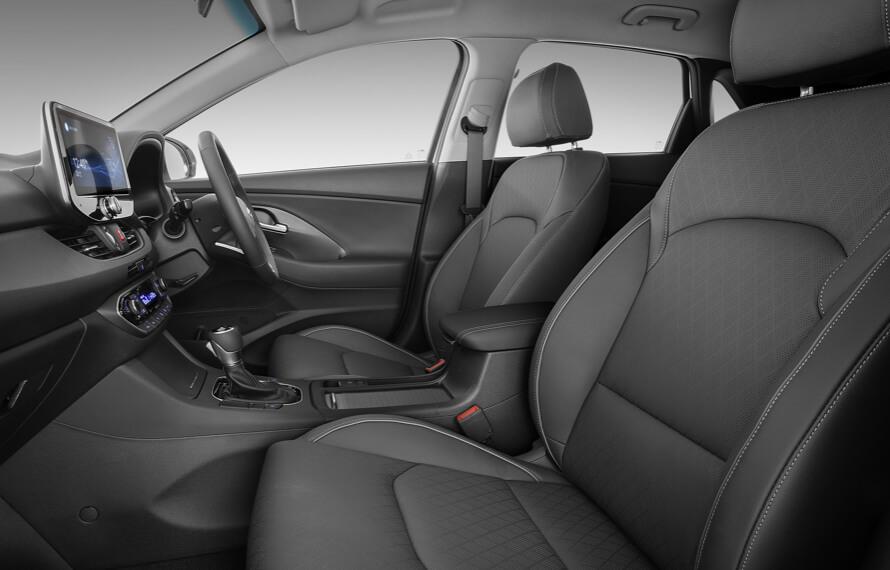
The i30 N Line matches the Active on paper. It loses blind-spot monitoring, safe exit alert and rear cross-traffic alert but adds:
The i30 N Line Premium adds the following features:
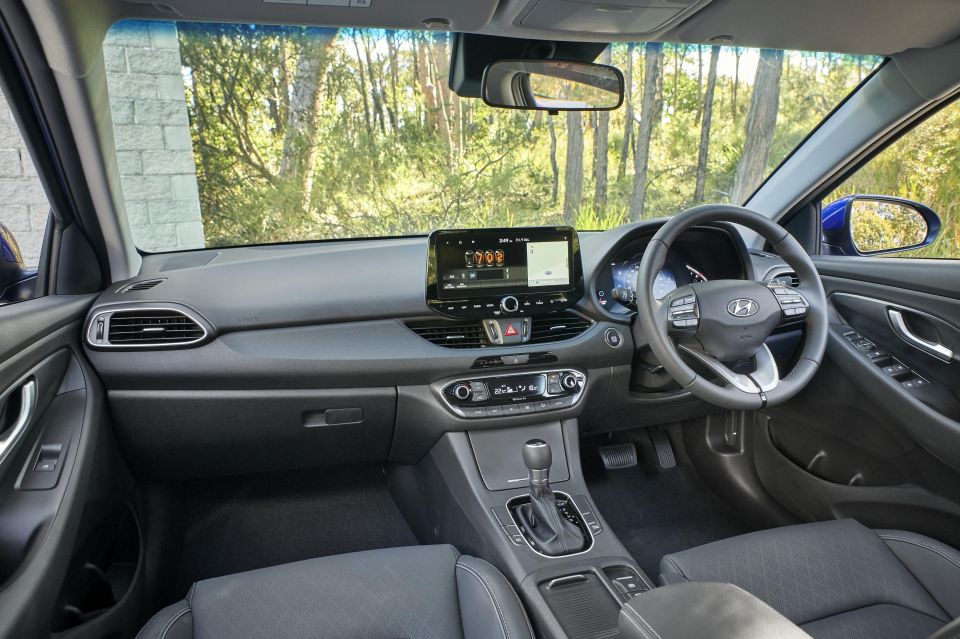
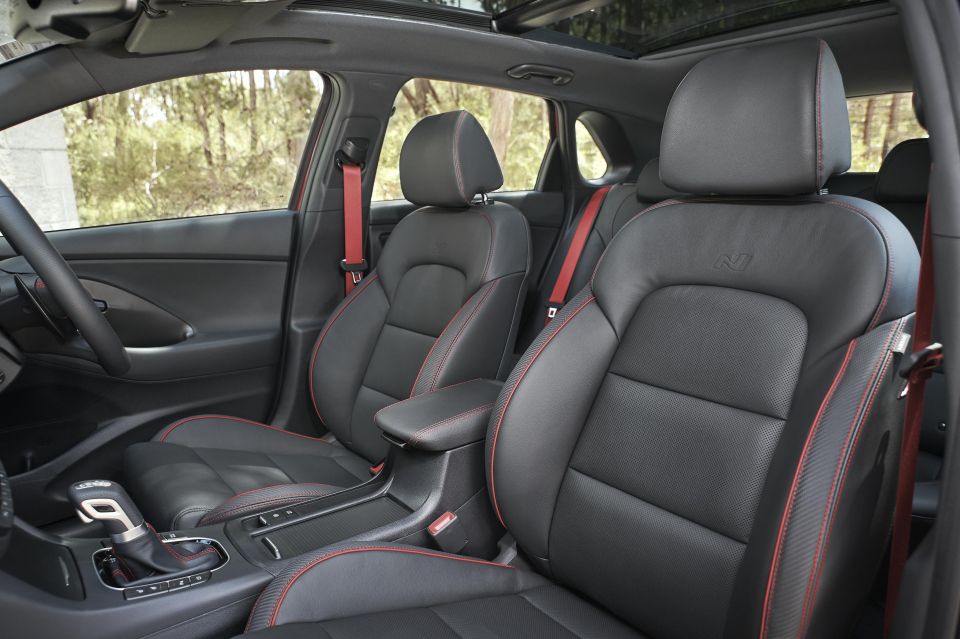
The 2020 Hyundai i30 requires servicing every 12 months or 15,000km, except for models equipped with the turbocharged 1.6-litre.
These models require servicing every 12 months or 10,000km, whichever comes first.
Hyundai offers a Lifetime Service Plan with capped-price services over the course of the i30’s five-year, unlimited-kilometre warranty.
The average cost of a service over this period is $277 for i30 models with the 1.6-litre turbo petrol and $279 for the naturally-aspirated 2.0-litre.
Go deeper on the cars in our Showroom, compare your options, or see what a great deal looks like with help from our New Car Specialists.
Scott Collie is an automotive journalist based in Melbourne, Australia. Scott studied journalism at RMIT University and, after a lifelong obsession with everything automotive, started covering the car industry shortly afterwards. He has a passion for travel, and is an avid Melbourne Demons supporter.


Marton Pettendy
2 Days Ago
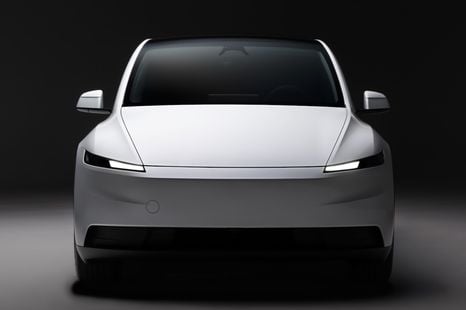

Ben Zachariah
2 Days Ago
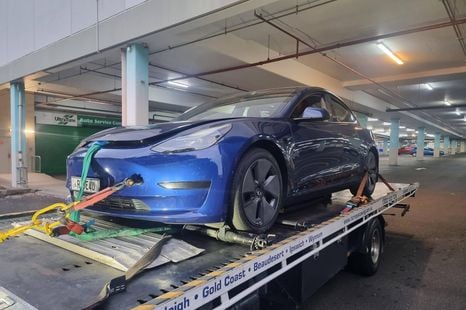

CarExpert
4 Days Ago
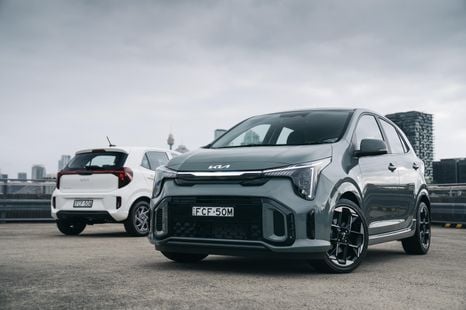

James Wong
4 Days Ago
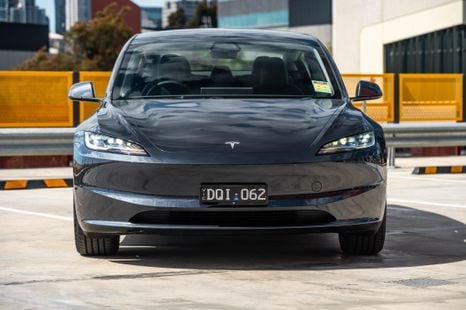

Josh Nevett
5 Days Ago
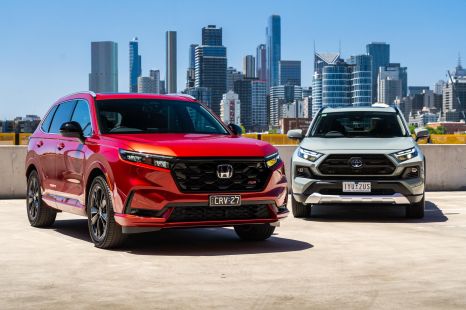

William Stopford
5 Days Ago